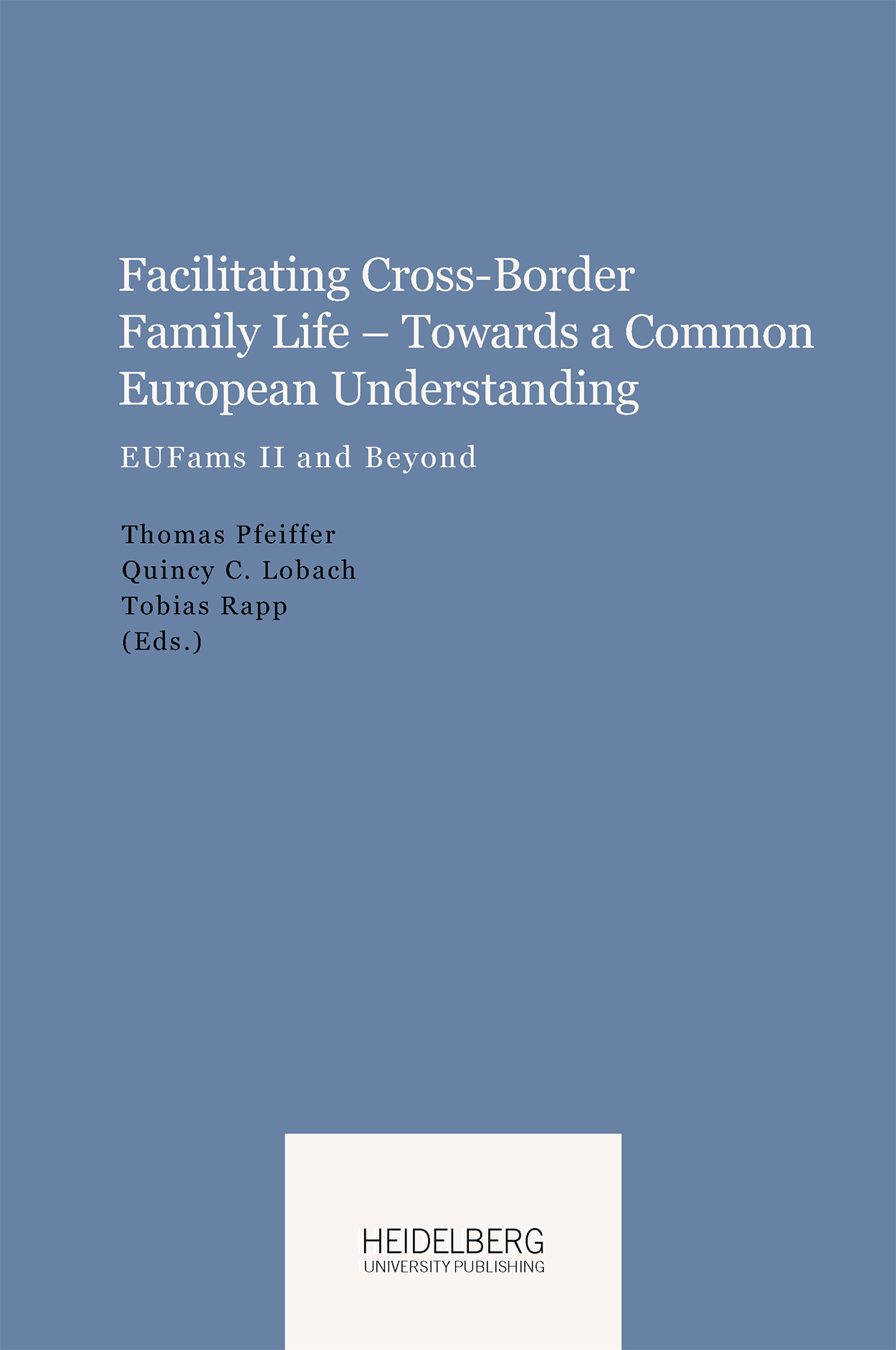Zitationsvorschlag
Lizenz (Kapitel)

Dieses Werk steht unter der Lizenz Creative Commons Namensnennung - Nicht-kommerziell - Weitergabe unter gleichen Bedingungen 4.0 International.
Identifier (Buch)
Veröffentlicht
Judicial Training in European Private International Law in Family and Succession Matters
Abstract: The reality of the administration of justice has changed over the last few decades through massive intervention of international and supranational actors within national judicial systems. Though state-centrism
has progressively been eroded, the national State remains the “master of the game” in adjudication. A proper application of European private international law is the cornerstone of civil justice. It goes without saying that judicial training (in a wider sense, including the training of judges, practitioners, and other stakeholders) is important in order to achieve an adequate and unified application of European private international family and succession law. The EUFams II findings further highlight that education and training of professionals in this area of law are of paramount importance when it comes to fostering predictability and legal certainty. This contribution commences by explaining EU policy on judicial training and presenting the main training facilities and their features. The contribution then turns to methodological aspects of the transfer of knowledge in legal discourse. The second part of the contribution presents the EUFams II
project results relevant to judicial training. It seeks to establish a direct link with EU justice policy objectives, methodologies, performance of judicial training at European training centers and national training academies that serve the system of justice in European family and succession law. Quantitative and qualitative analyses lead to conclusions and proposals in respect of future training policy and its desired performance in cross-border family and succession matters. Several methodological approaches are combined and presented in the contribution. The attempt to conceptualize pro futuro the judicial and legal professionals’ training in European family and succession law relies on all case law and legal instruments researched within the EUFams II Project, different questionnaires, published studies, evaluations and communications, and various scholarly contributions primarily in the fields of law and education. It has yielded the following ten practice-oriented and hands-on recommendations (rather than commandments) addressed to the EU and Member States alike. Summary of theses: 1. Training needs to continue being guided at the EU level. 2. Judicial training should be made a priority. 3. A study of training needs should be conducted in general, for each Member State, and for each legal instrument. 4. A model curriculum should be adopted at the EU level. 5. The training curriculum should be designed on several levels and ranked based on EU criteria. 6. Training should be based on modern teaching methodology. 7. EU funded material should follow an open access policy and remain available on a single webpage administered by the EU, even after the expiry of the respective project. 8. Training should be delivered to specific target groups. 9. Access to high quality training should be made available to all eligible judges. 10. International and national training should be kept in balance.
Keywords: judicial training, European family and succession law, EJTN, ERA, EIPA, IHNJ






